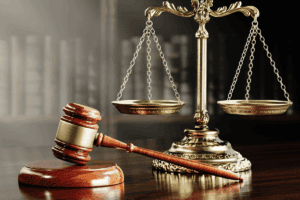The company has reported a fraud case against its former chief executive Markus Jooste with the Hawks.

An investigation into the Steinhoff accounting scandal that collapsed the share price of the multinational retailer would start in earnest in February, MPs heard on Wednesday.
Briefing parliament’s committees on finance, public accounts and public service and administration, Independent Regulatory Board for Auditors (IRBA) chief executive Bernard Agulhas said they opened a case in December last year against Steinhoff and requested information from among others the company’s auditors – Deloitte.
Agulhas said IRBA had received a response from Deloitte this past Monday.
“We can actually start on the investigation we planned for February 2018,” he said.
IRBA was in talks with its German and Dutch counterparts, Agulhas said. Steinhoff’s main listing is in Frankfurt and has its corporate seat in Amsterdam.
Earlier, MPs accused regulators, including the Financial Services Board, of not taking the Steinhoff matter seriously enough. News of the accounting irregularities wiped billions off its market value.
The South African Reserve Bank responded that the matter was being taken seriously but added that it did not think exchange controls were breached.
The Financial Services Board said it was also probing the matter and taking it seriously, but added that it too awaited a report from PriceWaterhouseCoopers (PwC) which Steinhoff had contracted to independently probe what led to the accounting irregularities in the financial statements of Steinhoff from as far back as 2015.
Steinhoff acting chairwoman Heather Sonn earlier informed MPs that the company had reported a fraud case against former Steinhoff chief executive Markus Jooste with the Hawks.
Other than this, Sonn, along with former board chairman and major shareholder Christo Wiese and head of the board’s audit committee Steve Booysen said they could not answer any questions on what led to the scandal, saying they too were waiting for the PwC report.
Wiese said he became aware of the accounting irregularities days before it was confirmed in early December. He was at pains to point out that the auditors who pointed out the irregularities in the 2017 financial statements had been the same company “paid handsomely” to do previous audits, the integrity of which are also now been questioned.
Booysen said while initial reports of fraud at Steinhoff being investigated by German authorities surfaced in September last year, irregularities were only confirmed in December.
Jooste was asked to make a presentation to explain certain transactions and “more importantly the cash flow of certain transactions”, said Booysen.
“Markus Jooste then did send an sms [text message] to me as audit chairman and the content of the sms really led me to the conclusion that that is confirmation of the accounting irregularities and then he later offered that evening to make his presentation for which he didn’t pitch up…”
Booysen said Jooste tendered his resignation at 19h45 that same evening.
The Steinhoff team said it was due to meet with PwC this week to engage on the debacle, which wiped billions of rand of government pension funds invested through asset manager, the Public Investment Corporation (PIC).
The Government Employees Pension Fund, through the PIC, owned about R28 billion in Steinhoff‚ about 10 percent of the shares of the company, but only one percent of the total assets of the Fund. But following the massive decline in Steinhoff’s share price‚ the GEPF’s investment was worth a little over just R2 billion.
– African News Agency (ANA)
Support Local Journalism
Add The Citizen as a Preferred Source on Google and follow us on Google News to see more of our trusted reporting in Google News and Top Stories.






